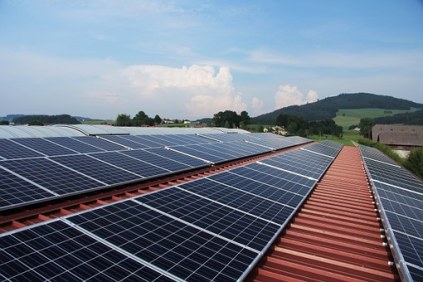Bengaluru: KERC revised the solar tariffs for the ongoing fiscal year. This comes in as good news for domestic consumers who plan to install solar power plants on their rooftops. Domestic consumers will be paid higher tariffs for adopting green energy.
According to a recent tariff order, for grid-connected solar rooftop photovoltaic (SRTPV) projects of 1kW to 10 kW for domestic consumers, the tariff has been fixed at Rs 3.99 per unit without capital subsidy and Rs 2.97 per unit with subsidy.
The generic tariff for grid connected megawatt scale solar projects of less than 5 MW has been fixed at Rs 3.08 per unit. For grid-connected SRTPV projects of 1 kW to 2000 kW is now Rs 3.07 per unit (without capital subsidy) and Rs 2.32 per unit for those with capital subsidy.
The tariff will be applicable for projects that entered into power purchase agreements on or after April 1, 2019.
Bescom officials said the new tariffs will give a fillip to solar power generation from the domestic sector.
The Karnataka Electricity Regulatory Commission (KERC) had proposed to revise tariffs for solar power projects, including solar rooftop photovoltaic plants, by considering a revised capital cost, safeguard duty and applicable GST, and the revised capital cost. The proposed tariff for 1-10 kW plants for domestic consumers was Rs 3.93 per unit, and for 1kW to 2000 kW plants is Rs 3.18 per unit.
In May 2018, the KERC had determined Rs 3.56 per unit for kW scale solar rooftop photovoltaic projects , and Rs 3.05 per unit for megawatt scale solar projects, which was applicable up to March 31 this year.
The KERC’s tariff order said as on December 31, 2018, the State’s installed solar power generation capacity of 5,329 MW, including grid-connected ground mounted plants as well as rooftop plants. But the capacity of SRTPV plants was just 154 MW, a bulk of which was large projects.
The commission said this indicated that smaller consumers — especially domestic consumers — had not shown much interest in installing SRTPV plants on their rooftops, despite the potential being large, and the prospect being beneficial for both the consumer as well as the distribution companies. The tariff order stated that one of the reasons for the poor response for the installation of rooftop solar photovoltaic plants by domestic consumers may be a low Feed In Tariff fixed by the commission as compared to the relatively higher capital cost of smaller capacity SRTPV plants. There is a need to promote smaller capacity solar rooftop plants by domestic consumers.
Source: The Hindu

